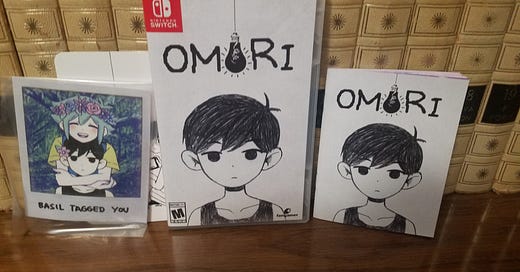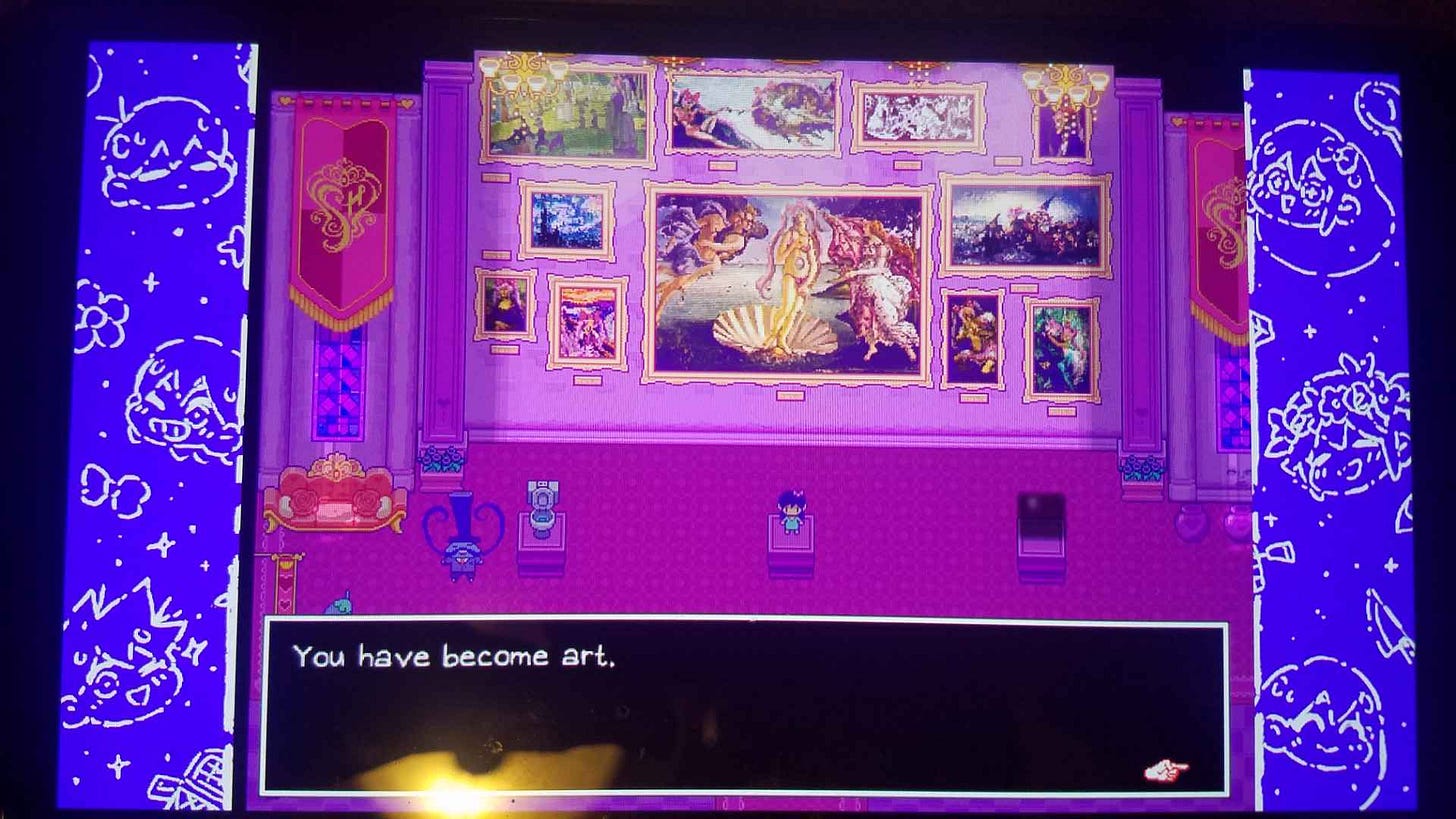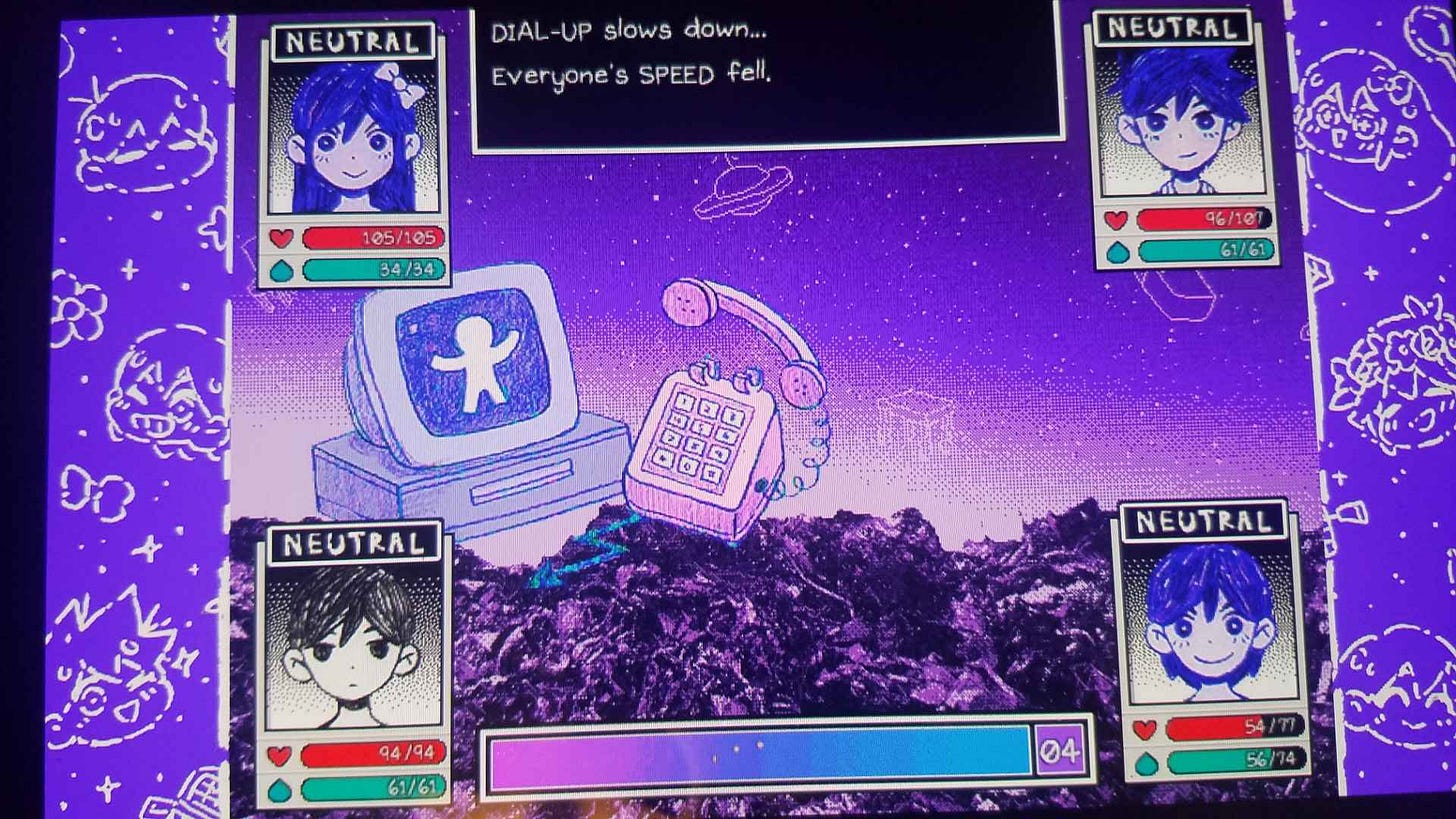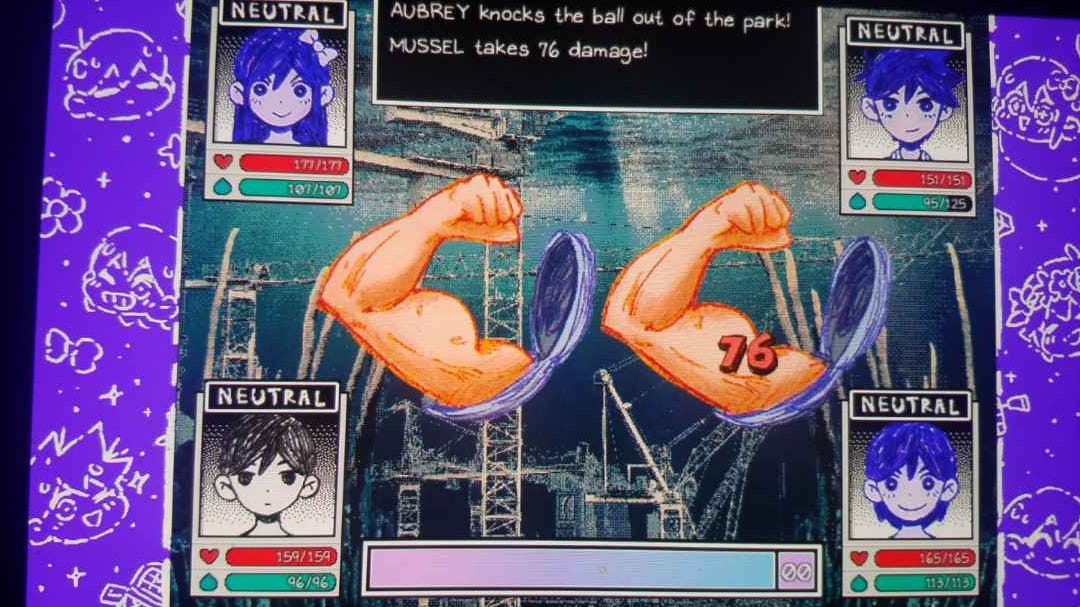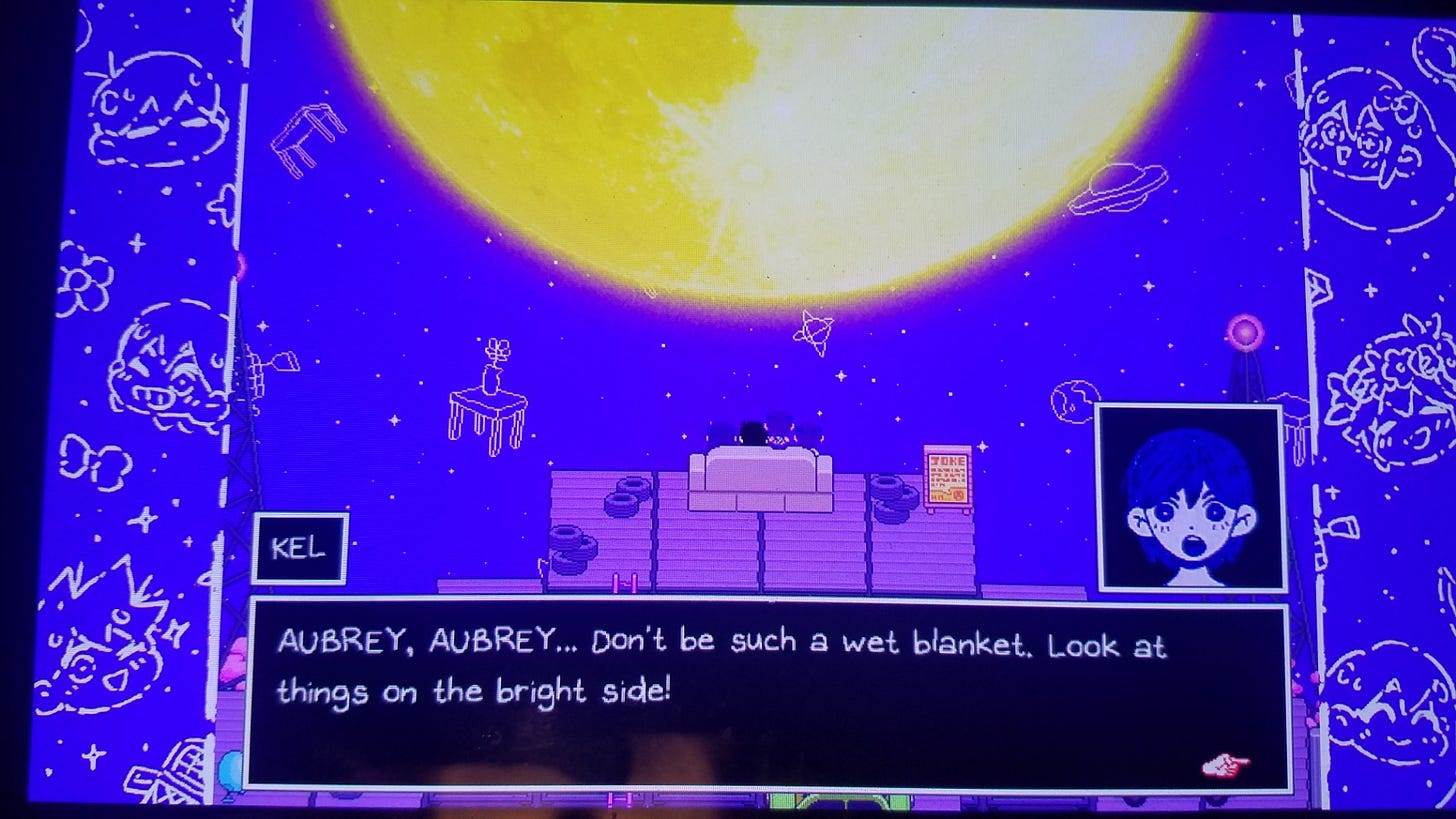Omori Review
Find or Lose yourself within a world of dreams in this sobering yet whimsical meditation on Grief and Escapism.
“I began to know that each morning reasserted the problems of night before, that sleep suspended all but changed nothing, that you couldn’t make yourself over between dawn and dusk.” -John Knowles, A Separate Peace
“Sometimes, though not often, he had dreams that were more painful than the dreams of other boys…. They had to do, I think, with the riddle of his existence.” -JM Barrie, Peter Pan
“I called you. I asked for you to come here. I admit I wanted a way out... but now I know that it was wrong.” -Satoshi Kon, Paranoia Agent
One unfortunate reality of living in the exciting, interesting, and fulfilling world that we inhabit is that inevitably, we will experience something that suddenly… isn’t. An event or loss so sudden that it puts us in a state of emotional turmoil, the aftermath of this event being a state known as Grief. And while disruptive to our lives, most Grief passes with time and is essential to the healing process, with a person going through the various stages of denial, anger, bargaining, depression, and finally, acceptance. And while most people process and experience these moments in their own way, what happens to those who aren’t prepared for what is needed to come to terms with their loss and flees as a result?
This is what is known in psychology as Disassociation. Overcome with grief and incapable of facing the new reality it heralds, some people never get past the first phase, trapped in Denial. They retreat into themselves, finding solace in their cherished memories and imaginings of better times. It is easy to be sympathetic to those who are choosing this, particularly those who have lost someone close to them. In fact there is a quiet but vigorous debate among many as to whether or not it is healthy to pull them back into a painful world in the name of progress and “fixing” their disassociation?
This is the decision you will make in Omori. It puts you in the shoes of one such person suffering from these disassociated dreams, was well as the nightmare that is reality relentlessly pursuing him. A person who in a desperate act of self-defense broke from the world, and then broke from himself. It is a heart-wrenching examination of what loss can do to someone and how it can change everything. A single moment can define your life, if you let it. Will you choose to face your grief and come to terms with this new reality? Or will you choose to stay in a comforting and whimsical world of your own making?
A Separate Peace
Before we get into this properly, it is worth examining a personal experience I had. When I was 9 years old, I had an Iguana named Iggy who I loved dearly. From feeding him watermelon to taking him to school for my grade photograph, I greatly enjoyed spending time with him, and he was the first pet that was distinctively mine. One day, wanting to show him to a new kid who had recently moved in that summer, I took him outside, where he slipped from my hands and promptly escaped through the fence into the greenery behind it. Iggy was gone. And though we looked and looked into the dusk, we never found him.
I was devastated. Not only had I lost my pet in a place where winter would bring his death, It was entirely my fault. And despite my parents telling me he was smart and would be able to find a place to stay warm, I knew better. It was days before I would even eat more than I had to. I slept a lot, and suffered from dreams where he was just lost in my house, found climbing on the curtains. Or that the news declared another family found him. It wasn’t until we visited the local Sears to pick out some games that I finally started to come out of it with their help. One Game was Sonic 3. The other…. was Earthbound.
It was the game I NEEDED at this particular time and place. Ness was a kid in a town not unlike mine. He got Homesick and would need to call his mom. He refreshed his mind and soul with coffee breaks that allowed him to have existential epiphanies. And it was full of a whimsy and innocence that I desperately needed. The game was there for me when I needed it the most, and I used it to disassociate from my grief long enough for acceptance of what I had done to manifest. So it was no surprise that when their game showed up for 35 dollars on Fangamer I bought it immediately. where it waited in my backlog until a recommendation of a Twitter friend guided me to it.
I started the game, and Awoke in White Space…..
Waiting Between Worlds
White Space… a place you have been as long as you remember. A place to survive, but not to live, and a waiting room of sorts. With little to do you will begin to explore your sparse surroundings rather quicky, and it isn’t long before you find a knife before a door appears. You go through it, and are greeted with a vibrant world of color and your four friends, ready to head out and meet with your older sister and best friend Basil. It’s time to plan another adventure with the people you love. After a day of Picnic and play in the park and a showdown with a misunderstood bully, you head back to Basil’s place to look at your photo album, the perfect end to a perfect day…..
And then, you wake up. It’s late in the night, and you are much older than in your dreams. The house is dark and empty, with only a few boxes remaining. A Voice Mail from your mom tells you you will be moving away in three days. One of your friends, Kel, has been trying to reach you since the “for sale” sign went up. Being hungry, you head downstairs to get something to eat, but immediately throw it up in the bathroom afterwards before going back to sleep. Back to White Space….
Omori is the tale of a person waiting between worlds, between the idea and the reality, between the past and the future, between the imaginary and the real, and this is the story of how one navigates these murky waters of regret and grief to arrive at the future. I would be doing you a disservice to get into the actual story beats any more than this and what I have alluded to in the preamble, but you will play a pivotal role as you guide Omori through his adventures in Headspace and his attempts to reconcile his past in real life. How you choose to do that is up to you, and will influence the final outcome of this story.
Somebody To Lean On
Omori’s gameplay and tone are heavily inspired by Earthbound in a variety of ways. It’s a Turn-Based RPG with visible enemies onscreen that eschews animation for text describing to you what is happening in the actions, it’s simplicity serving to hide a robust and creative series of systems that differentiate itself in a couple of unique ways. First, the game uses Emotional States in place of Status Effects, fitting for a game that focuses on psychology. Each of these mental states renders advantages and disadvantages. So being Angry ups your damage but also increases damage done to you, whereas being Sad does the opposite Lowering your damage but also reducing incoming damage to reflect your withdrawn State. Being Happy increases critical hit ratio but also lowers accuracy.
This also pairs with a teamwork system that allows you to accumulate points as you take damage that can either be spent on team actions that tags in another friend for some added effect, or saved in order to unleash a super attack that deals tremendous amounts of damage. As an added detail you can learn a lot about your friends by how they interact in battle. Aubrey may try to get Omori’s attention, fail to, and as a result swing harder for another attack to pile on damage. If Kel passes to Aubrey he will make her made, putting her in anger state. Each of these actions serves to tell additional stories to those paying attention.
It all comes together perfectly. Kel is one of the faster party members, so he can attack before passing to Aubrey and angering her. Aubrey can then use Headbutt which deals more damage when Angry for massive damage. Hero can make Kel Happy before Kel uses flex to make his next attack guarantee to hit, ensuing a Critical. There are tons of these combos and more will become available as the battles carry on, so get creative! But keep in mind that many enemies can do similar things, including manipulate your emotional states as well. As a result many battles come down to maintenance of both you emotions as well as the enemies. When it all comes together, it is compulsive and makes you want to keep playing.
Nightmares and Dreamscapes
Omori took a long time to release, and it is easy to see why. Like with gameplay, simplicity hides the amount of effort and attention to detail that went into bringing this world to life. The games myriad enemies are drawn in a unique children’s book style, with almost no recolors amongst them. From Lost Mole Sprouts rambling around to Dial-Up Internet being so slow you hurt yourself in frustration, the text descriptions are remarkably effective when also paired with the attack animations that are present to lend weight to the proceedings. Every enemy is a joy and I laughed out loud more than once. The world is full of the same details. Almost everything and everyone has unique interactions that I wont spoil. Look at everything!
I also cannot give enough credit to the variety of the game’s soundscape. Sound effects are meaty and impactful but the star of the show is the OST. This Soundtrack is absolutely MASSIVE and filled with earworms that stick in my head even almost a month after completion. The game starts with a pretty yet distorted piano melody foreshadowing the experience you are about to embark on. Tracks like Space Road are ambient and illicit Earthbound vibes in the best kind of way. Every area and boss has it’s own battle theme, one of which (Three Space Logos) I cannot get out of my head! And Tracks like It Means Everything will break you when paired with the moment at hand. There are more I could name but I won’t as the sheer variety on tap matches the quality.
I encountered no glitches or bugs while playing, and performance was fine. Load times were not noticeable if there at all. I finished one route for this playthrough, though my understanding is that there is an entirely different route to experience filled with additional lore, areas, and events unique to it’s experience. I will definitely be returning at some point, and may do a followup to this review when I do. It’s that good. As of this writing you can still find Omori in Retail locations and on Fangamer’s website for 35 dollars, and fans of Turn-based RPGs will more than get their moneys worth.
Saying Goodbye to Yesterday
Sometimes you find what you need in strange places. I went into Earthbound all those years ago and found an experience that meant a lot to me at a vulnerable time in my life. And ever since I have been waiting and advocating for Nintendo to release Mother 3 or a new game in the series that was so important to me. But they never did. And at this point, it is unlikely they ever will. Itoi is busy with other endeavors, and Nintendo seems utterly indifferent to our pleas. One of the greatest realizations that gamers have made in the years since the Indie Revolution is the idea that if an owner of an IP is content to sit on an experience, then we can make a similar Effort ourselves.
Omori is that game for me. It’s a magnificent stand-in for Earthbound’s Whimsy and Nighmares. A game that broke me before picking up the pieces and putting them back together in a manner that I am not even sure an Earthbound game could accomplish. I often hear people mention Undertale as the successor to Earthbound, and while I see the inspiration, I consider it to be different enough to be it’s own thing. Omori IS my Mother 4. If you no longer hear me pining for another Earthbound, understand that at this point I have accepted that it is never coming back, and have finally moved on from it with help from Omori.
-Mongunzoo

